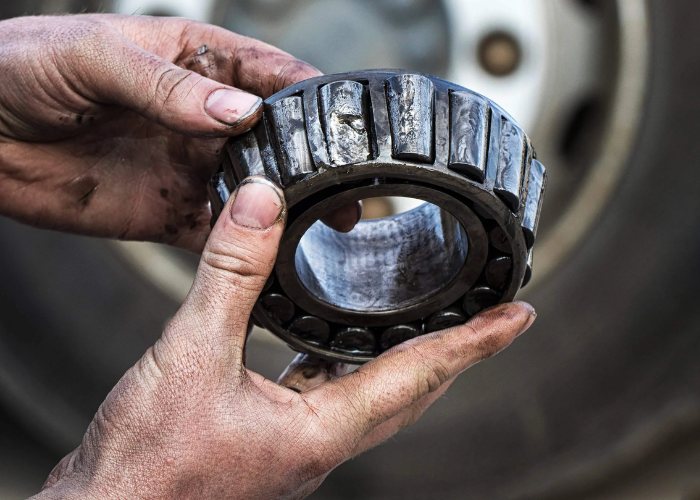A bad wheel bearing can have a significant impact on a vehicle’s acceleration. When a wheel bearing is not in good condition, it can cause the wheel to roll more slowly and thus reduce the amount of power available from the engine. This means that the vehicle will not be able to accelerate as quickly as it should be able to.
What is Wheel Bearing?
A wheel bearing is a type of bearing that is used to support the wheels of a vehicle. It works by allowing the wheel to rotate freely while supporting the weight of the vehicle. Wheel bearings are typically made from steel and are usually sealed so they can last for a long time. The purpose of a wheel bearing is to reduce friction between the wheel and the axle, allowing the wheel to rotate freely. Without them, the wheel would not be able to rotate and the vehicle would not be able to move. Wheel bearings are important components of a vehicle’s suspension system and should be inspected regularly to make sure they are in good condition. If a wheel bearing is damaged, it can cause a variety of issues, including increased vibration, noise, and reduced acceleration.
Symptoms of a Bad Wheel Bearing
A bad wheel bearing can affect acceleration in a number of ways. A bad wheel bearing can often cause a vehicle to vibrate, shudder, or pull to one side while driving. It can also cause the car to make a grinding or humming noise, especially when making turns. It is important to pay attention to these symptoms because a bad wheel bearing can lead to a much larger issue, such as tire wear, suspension damage, or even an engine malfunction. Additionally, a bad wheel bearing can cause a loss of power when accelerating, as the wheel bearing is responsible for transferring power from the engine to the wheels. If a wheel bearing is worn out, it will not be able to transfer power effectively, thus leading to a decrease in acceleration.
How Does a Bad Wheel Bearing Affect Acceleration?
A bad wheel bearing can have a dramatic effect on vehicle acceleration. When a wheel bearing is damaged, it can cause the wheel to wobble, which can reduce the grip of the tire on the road surface. This reduces the amount of power that can be delivered to the wheels, and thus, it affects the acceleration of the vehicle. Additionally, a bad wheel bearing can also lead to increased drag and resistance due to the increased friction between the wheel and the axle, further reducing the amount of power that can be delivered to the wheels and thus affecting the acceleration of the vehicle. Finally, a bad wheel bearing can also cause vibration and noise, which can be distracting to the driver, further reducing the amount of power that can be delivered to the wheels and ultimately affecting the acceleration of the vehicle.
Diagnosing a Bad Wheel Bearing
A bad wheel bearing can have a significant effect on acceleration. It can cause the wheel to not spin freely and can cause the car to vibrate and shake. In order to diagnose a bad wheel bearing, you should inspect the wheel for any play or free movement, listen for any strange noises coming from the wheel, and have the car put on a lift to check the bearing. If the bearing is found to be faulty, then it should be replaced as soon as possible. It is important to note that a bad wheel bearing can cause the car to lose its grip and cause the wheels to slip when accelerating. Therefore, it is essential to have the wheel bearing checked and replaced if necessary to ensure that your car is safe and efficient.
Resolving a Bad Wheel Bearing
When it comes to resolving a bad wheel bearing, one of the first things to do is to identify the source of the problem. This is typically achieved by inspecting the bearing for signs of wear or damage. If the bearing is worn or damaged, it can cause a decrease in acceleration due to the increased friction between the wheel and the bearing, leading to a decrease in power. Depending on the severity of the wear, the bearing may need to be replaced or serviced in order to restore the vehicle’s acceleration. Additionally, it is important to check the wheel for any other issues that could be causing the decreased acceleration, such as misaligned tires or worn suspension components. If the bearing is found to be the source of the problem, it is essential to take the necessary steps to resolve the issue, as a faulty wheel bearing can lead to further complications and can even be dangerous.
Conclusion
A bad wheel bearing can have a significant impact on acceleration. It can cause a number of issues, such as increased friction, decreased stability, and a decrease in power transfer. Additionally, it can lead to excessive tire wear, alignment issues, and increased fuel consumption. For these reasons, it is important to have your wheel bearings inspected and replaced when necessary.

